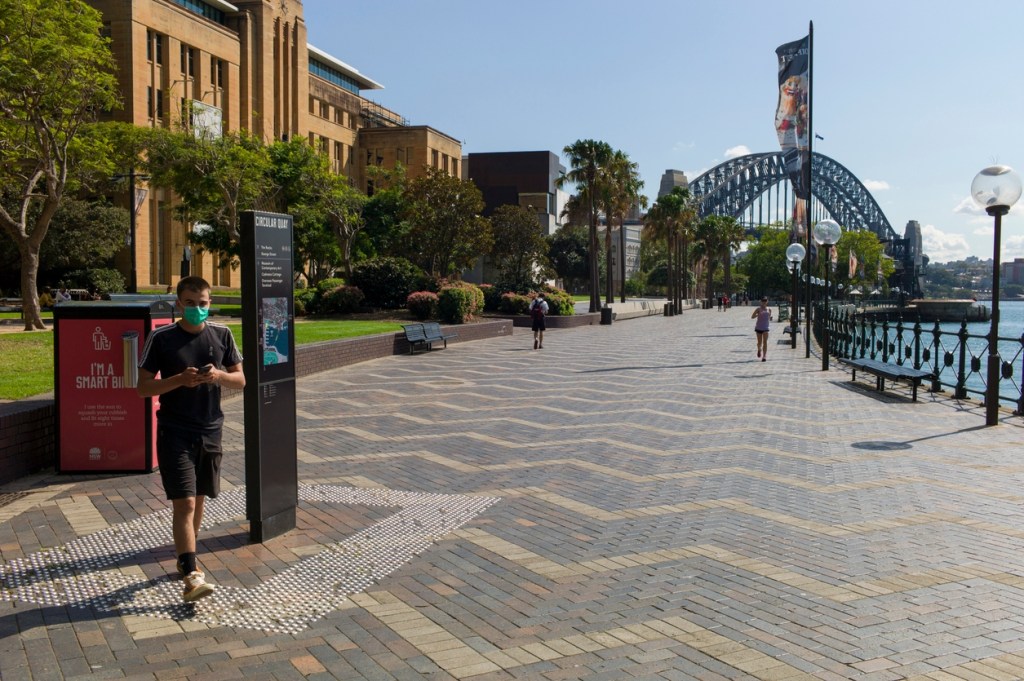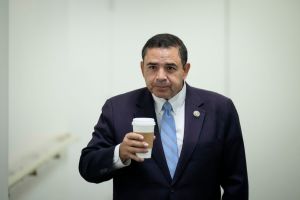As the West struggles through the eye of the coronavirus storm, it is difficult not to cast our eyes across the world and compare our fate with that of our friends and allies. One nation in particular stands out — Australia — seemingly on course yet again to assume its role as ‘The Lucky Country’.
It’s tasteless to say, but Australia has had ‘a good crisis’ — it’s one of the few nations to emerge relatively unscathed from the pandemic’s deadly grip and has recorded just 75 deaths so far. Now Sydney’s famous beaches are re-opening this week, and visitor restrictions on care homes are being relaxed. Australia’s performance is especially intriguing given its geographic proximity to Asia.
When I was visiting in January, the specter of coronavirus was already looming on the horizon, with a degree of panic forming around the disease’s potential impact on Chinese tourism and higher education. The air was still choked with smoke from the devastating bushfires, which had torn through the South East over Christmas.
Prime Minister Scott Morrison recognized that after his ham-fisted handling of the bushfires, he may not survive another crisis, and acted quickly. By January 23, medical screening of passengers from Wuhan was implemented, and within weeks the nation’s borders to China, and then the world, were effectively closed.
Australia came into the crisis with some structural advantages over other nations. The pandemic hit at the end of summer, when people are healthiest and when hospital corridors are largely empty. As an island with indigenous species to protect and a national sensitivity to immigration, its border control force is adept at mobilizing swiftly. Lifestyle is also important — Australia is prosperous and low density. In its sprawling cities large parts of the population live in detached homes, and drive their own cars. Inter-generational homes are also uncommon.
The proactive and collaborative nature of both state and federal political leadership was also instrumental. A national cabinet was formed, giving state premiers — who control schools, transport, and hospitals – a seat at the table managing the response. Trade unions were also drafted to provide input into the government’s economic A$320 billion support package. ‘There are no more unions or bosses,’ Morrison announced. ‘There are just Australians now. That’s all that matters.’
Less visible, but no less significant in Australia’s unique handling of the crisis, was political experience, in particular, its relationship with China. Australia is several steps ahead of the US and UK in its strategic dealings with China. It was at first transfixed by China’s growing market power over the past three decades, but then was forced to dramatically retreat after a series of outrageous breaches of national security. The audacity of Chinese-led cyber-attacks, the infiltration of universities, and Chinese efforts to buy political influence led Australia to become the first Five Eyes nation to rule out Huawei’s involvement in building its 5G network.
As political attitudes in Australia have hardened, so too has public opinion. There were scant moral outcries when border controls were implemented, and strict quarantining measures put in place. Australia’s intelligence services, well versed in China’s perverse tactics, sounded the alarm early about the veracity and transparency of its reporting. Australia has now joined the United States in calling for an ‘independent investigation’ into China’s role in the pandemic.
***
Get three months’ free access to The Spectator USA website —
then just $3.99/month. Subscribe here
***
British foreign secretary Dominic Raab has too intimated support for an inquiry, and admitted Britain cannot continue ‘business as usual’ with China. Yet, without a coordinated China engagement strategy, it is difficult to know what this will mean in practice. UK Foreign and Commonwealth Office chief Sir Simon McDonald this week described Britain’s relations with China as split between an understanding that it must remain central to global cooperation, and an awareness that we must avoid economic dependency on the authoritarian state. Between these positions, considerable gray areas remain.
China’s behavior during the COVID-19 pandemic has confirmed the very worst suspicions of its nefarious instincts at home and abroad. It may have committed some good acts, but there is no doubt that it is not a Good Actor. On the other side of this crisis, Britain’s decision to defy the security warnings of two of our closest global allies on Huawei will again be called into question. The UK’s allies will seek its concerted backing for a global inquiry into China’s behavior. Like Australia, Britain cannot have the wool pulled over its eyes.
Sophia Gaston is the director of the British Foreign Policy Group. This article was originally published on The Spectator’s UK website.


















